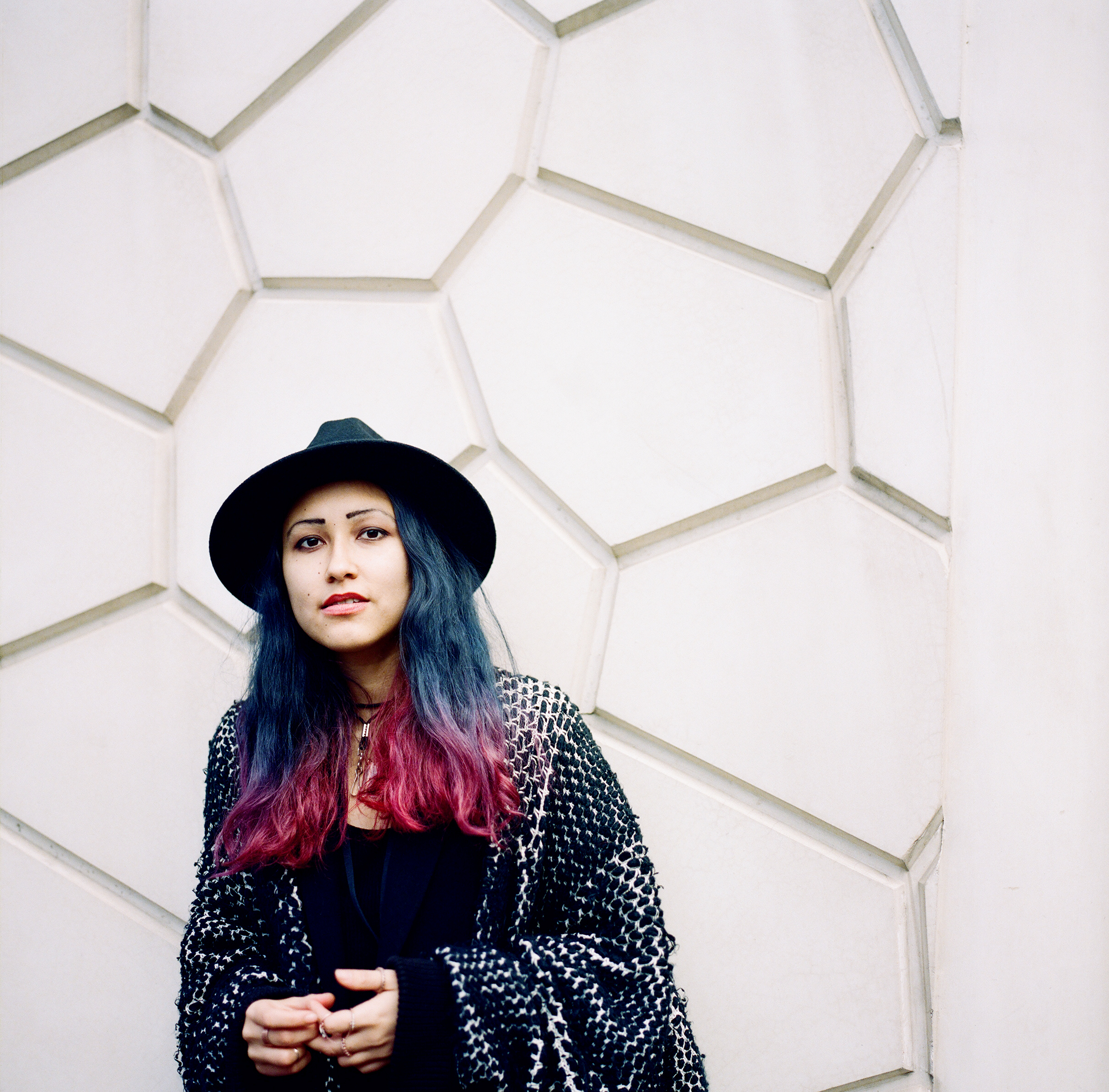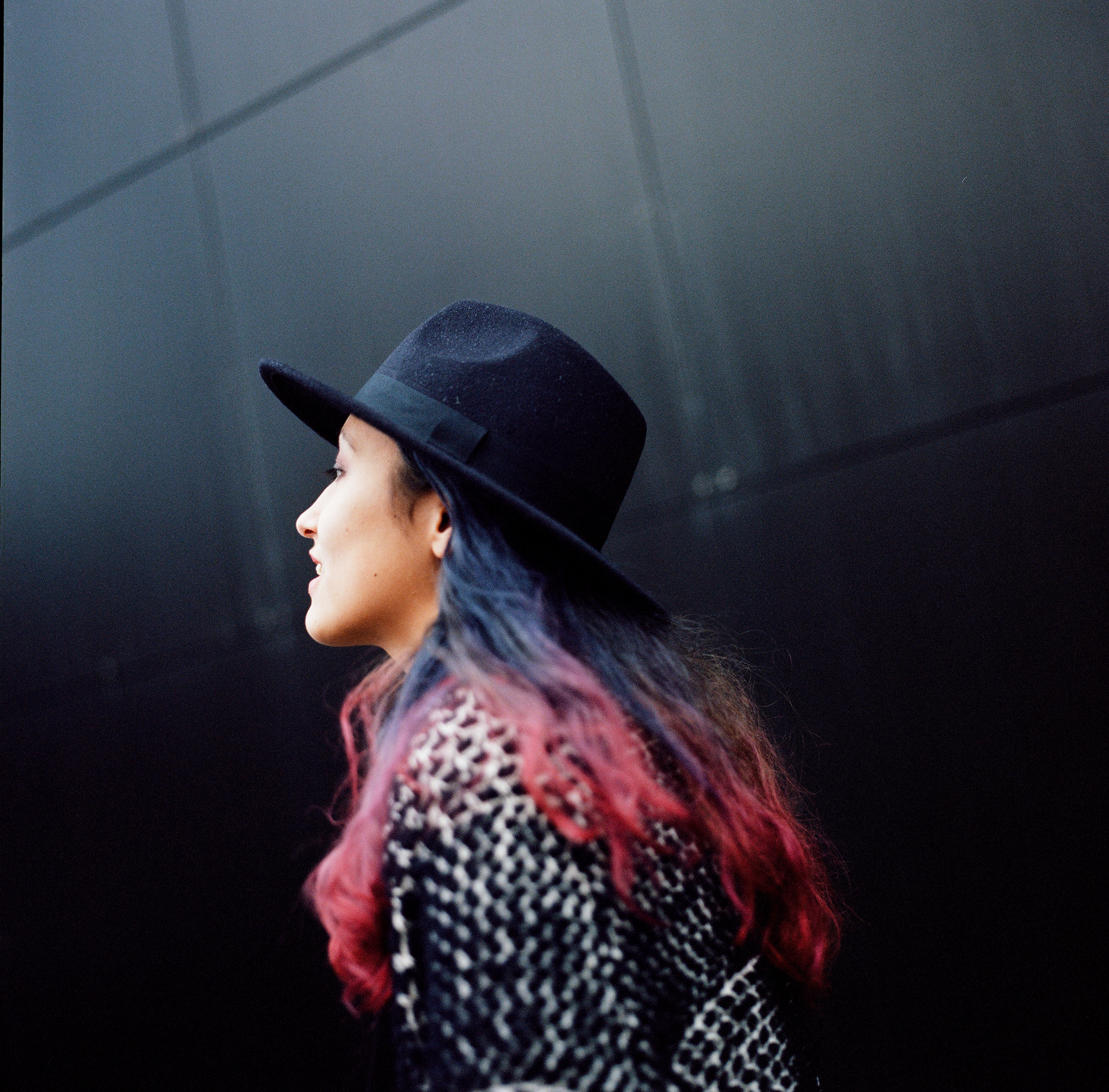Interview #111 — Anchuli Felicia King
by whitney McIntosh
Anchuli Felicia King is a multi-disciplinary artist and playwright. With six productions this year, Felicia has rocketed onto the global stage as a young Thai-Australian self-described “theatre-maker.”
Felicia spoke to Whitney McIntosh about her recent play White Pearl, which debuted in London earlier this year, and Golden Shield, coming to the Melbourne Theatre Company soon.
Buy tickets to Golden Shield, at MTC’s Southbank Theatre until 14 September.
Congratulations on your international playwriting debut in at the Royal Court in London for White Pearl in 2019! In this corporate satire of a skin-lightening start-up gone wrong, you depict six pan-Asian women confronting each other—and themselves—amidst a social media crisis. What inspired you to tell this story?
I started writing White Pearl in 2016 when I saw a bunch of ads for skin whitening products go viral online for being racially insensitive. I found it fascinating because I saw those kinds of ads all the time growing up in Thailand and the Philippines. With the advent of mass digitalisation, no one could advertise in a national vacuum anymore. They were suddenly accountable to a global audience, and a global racial politics. That was really the impetus for writing the play.
In White Pearl, you deftly play with racial stereotypes, revealing their truths and their inadequacies. How do you think about stereotypes, both on and off the stage?
It’s an ongoing question for me: how do you explore racism without perpetuating it? For me it’s about toeing a very fine line, exposing ugly truths about prejudice with nuance and complexity, inviting a different kind of audience engagement. I’m a firm believer that theatre shouldn’t be an excessively comfortable space. I want to invite my audiences to listen actively and critically, to really think about the issues my plays explore. And to invite them to question their own place and complicity in those issues.
The millennial experience, which you portray in White Pearl, is often critiqued as narcissistic, commodified, bleak. How do you think about being a millennial? (Or a young Thai-Australian millennial?)
White Pearl hyperbolises and satirises a lot of things that I find disturbing in so-called millennial culture: the false utopianism of startup culture, for example, and the viciousness of online cancel culture. I wanted these six young Asian women to be these outsized monsters of capitalism, to look at how globalised capital and digital technology is impacting our generation. But equally, the play explores how these forces aren’t unique to our generation but exist in a disturbing historical continuum: with colonialism, with past conflicts, with our inherited cultural trauma.
It’s an ongoing question for me: how do you explore racism without perpetuating it?
In White Pearl, you depict the crises that can happen when content can go viral. But you also present a hidden vitality in social media crises, by showing how they can make us have difficult conversations that wouldn’t usually happen. What are some hard conversations you’ve had recently? And what hard conversations would you like your audience to have?
I think ultimately my goal as a playwright is not to proselytise or educate but to ask difficult questions. The writing process for me is one of catharsis: thinking deeply about issues that don’t have easily moral answers and grappling with them through the story I’m telling. So I’m always having hard conversations - with my collaborators and my audiences. It’s a process of unpacking my own bias, my own cultural conditioning, and encouraging others to do the same.
Theatre, an inherently communal art form, seems like a space where one could elevate people of colour. I heard that you had women of colour in almost every department of the production. What was it like being part of such a production?
I am hugely invested in making sure that my work is actually changing the culture of the institution I’m working in, particularly by opening doors for other artists of colour. This goes for the kinds of roles I write but also for my creative teams. It’s so important to me that my rehearsal rooms are global villages, rooms that actually reflect the diversity of global culture. It’s so enormously empowering to work in a room like that and for an audience to witness it.
As a Thai-Australian playwright, how would you like your international presence to be received? How would you like to be seen differently than you are now?
My plays are about the intersection of globalisation and technology, so I feel very fortunate that I’m getting to stage them internationally. But I do wish that people would look a bit more at what’s in the plays than who I am, where my writing isn’t constantly being reduced to my identity politics. Particularly as theatre is such a collaborative art form. There are so many other people shaping and contributing to the text that you read or see on stage. It’s not like writing a novel or poem, you’re not really the sole progenitor of the play.
I think ultimately my goal as a playwright is not to proselytise or educate but to ask difficult questions.
Your play Golden Shield is currently debuting at the Melbourne Theatre Company. It’s a story about an Asian-American female lawyer prosecuting a tech company on behalf of a Chinese dissident. Can you tell us about the figure of The Translator?
The Translator is the mediating force of the play—he's our narrator, our guide, our conduit. He not only translates literal text in the play (Mandarin to English) but also subtext and context, to reveal the total sum of semiotic misfires that can happen in a single moment. I really love that character and the way Yuchen is performing him in our MTC production. To my mind, he's not just a conduit but an empathy machine: he allows the audience to have emotional access to information, or scenes, with a level of directness and understanding they can't have without him there.
What were the plays and playwrights who were foundational to your work as a playwright?
Long before I ever started writing plays, I read them voraciously. I was always really attracted to muscular political plays. Tony Kushner, Ayad Akthar, Theresa Rebeck, J.T. Rodgers, Lucas Hnath, David Henry Hwang. And in-yer-face playwrights like Sarah Kane, Mark Ravenhill, Philip Ridley, Young Jean Lee. I think the thing that links those two genres of plays together, formally, is intellectual rigour and intricacy. As well as just sheer fucking bombast.
You self-describe as a “multi-disciplinary artist,” as well as a playwright. What is your philosophy behind mixing mediums and disciplines when you make art?
Being multidisciplinary is both my literal reality - I’m about to do a show where I’ll be the sound designer, the video designer and the playwright - and my mindset. Even when I’m just “the playwright” in the room, I work collaboratively and responsively. I’m getting and giving feedback to the director and the actors and the designers. The people I enjoy working with don’t do artistic silos, we’re just working in concert to tell the story we want to tell. It’s why for a long time I was very uncomfortable calling myself a writer. I think of myself as a theatre-maker more than anything else.
What’s next for you?
Lots of productions! I’m in rehearsal in Melbourne, and then I’ll go do two shows in Sydney, a show in D.C. and a workshop in Virginia. I’m starting to dabble in writing for film and T.V., but really for the moment I’ve very happy being this itinerant global playwright. And I have six back-to-back productions this year so I’m really just trying to survive 2019!
Being multidisciplinary is both my literal reality - I’m about to do a show where I’ll be the sound designer, the video designer and the playwright - and my mindset.
Do you have any advice for emerging playwrights?
Eighty percent of writing is redrafting. You’ll never get better as a writer if you’re too precious about your work. Be willing to scrap anything that’s not in service of the story you’re trying to tell. And be open to criticism and feedback, but don’t necessarily follow it. My professor at Columbia used to say “look at what the note is pointing at, not what the note is saying.”
What are you reading and watching?
I read mostly non-fiction these days. My brain can’t really handle fiction when I’m writing, I’m like a sponge, I end up absorbing the style of whatever I’m reading. At the moment, I’m reading Weapons of Math Destruction by Cathy O’Neil, a really comprehensive examination of how big data algorithms perpetuate social inequality and are radically transforming a lot of industries. You know. Light reading. And I just finished watching all seven seasons of Mad Men, which was a real time sink.
How do you practice self-care?
Uh.... I don’t? I’m a workaholic artist who travels constantly so I don’t exactly have a balanced lifestyle. I guess keeping a clean house (hotel), being vegan, spending time with friends, long skype chats with my sister. Oh, and going for long walks. That’s a must.
What does being Asian-Australian mean to you?
I think a lot of mixed Asian people and third-culture kids experience this weird cultural paradox in that you’re both the victim of cultural plentitude (an excess or multiplicity of cultures) and deprivation (exclusion from a single dominant culture or fixed identity). My way of coping with it has been to think of myself as a global citizen, to embrace that paradox and celebrate it. And appreciate the capacity it’s given me to be more open to other people’s cultures and experiences of the world.
Be willing to scrap anything that’s not in service of the story you’re trying to tell.
Find out more
Interview by Whitney McIntosh
Photographs by Leah Jing McIntosh





